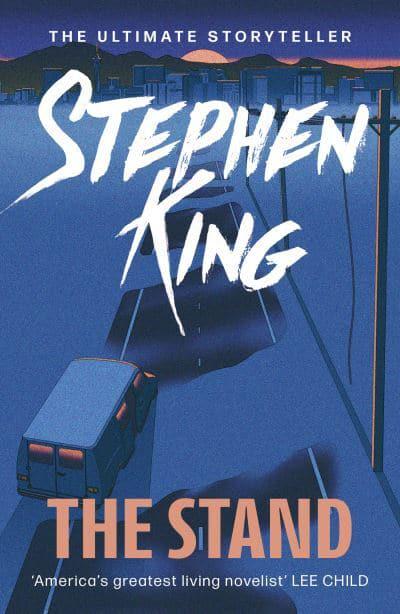|
The Stand has long been on my ‘to read’ list and I am glad to have finally read this epic thriller from Stephen King. The early stages of the novel are post-apocalyptic, as a manmade flu-like virus is accidently released from a top-secret US military laboratory, causing a catastrophic pandemic. Despite frantic, belated efforts by the government and the army to contain the outbreak, including brutal enforcement of martial law, 99% of humans die from the virus, and King vividly portrays the terror and despair as civilisation rapidly collapses – one scene that will stay with me is Larry Underwood’s nightmarish journey through the Lincoln Tunnel, a moment of visceral horror and tension. As the traumatised, often grief-stricken survivors try to regroup and make sense of their disintegrating world, The Stand moves towards more of a dark fantasy, and the shattered remnants of the United States gradually becomes the setting for an epic struggle between good and evil, and fear and paranoia become as deadly foes as the virus itself. For the survivors begin having strange dreams: either of a kindly, aged prophetess, Mother Abigail or of the ‘dark man’, Randall Flagg. Mother Abigail leads her followers to Boulder, Colorado, where they start to rebuild a society, facing challenges such as restoring the power, providing medical care (I felt sorry for Dick Ellis, the overworked veterinarian who is initially the only ‘doctor’ in the community) and shaping an effective government. Meanwhile, the demonic Randall Flagg beckons followers to his growing empire formed around Las Vegas, including murderer Lloyd Henreid (who Flagg rescues from prison and cannibalism…) and the pyromaniac Trashcan Man. And the stage is set for a struggle between the two communities, and the future of humanity… The Stand is a powerful, frequently disturbing novel, but at its core it is driven by insightful human details, which gives the book real emotional impact. One character I found especially interesting was Harold Lauder – he had been a social outcast at school and retains an obsessive love for Frannie Goldsmith, with whom he travelled to Boulder. (Minor spoiler alert) Despite becoming a valued and respected member of the community, Lauder cannot let go of the difficulties and rejections of his past, internal wounds that begin to lead him down a dark path. Harold Lauder is a complex character and is written with such skill by King, we can see how Lauder is twisted by a sense of betrayal, placing vengeance for past humiliations above embracing a new life for himself.
I also enjoyed the scene (again, minor spoiler alert) when Glen Bateman, a retired professor of sociology comes face-to-face with the demonic Randall Flagg – this moment is a powerful demonstration of how brittle authoritarian power can be when faced with mockery. Reading The Stand requires a significant time commitment from the reader, but in my experience, it was absolutely worth the effort. It is a gripping novel of huge power, encompassing fantasy, adventure, horror and much more, and from the first page you’re safely in the hands of a master storyteller. It is a long novel (and I read the extended / revised version) but for me the story never dragged and the scope of the novel justified the page-count. There is always a large number of characters in play, but the majority are so richly developed they are memorable as well as being key to propelling forward the plot. I have read (embarrassingly) little of Stephen King’s work before tackling The Stand, but I am definitely hooked now! I have just started reading The Dark Tower and look forward to losing myself in another epic dark fantasy…
0 Comments
Leave a Reply. |
Archives
October 2023
Categories
All
|

 RSS Feed
RSS Feed